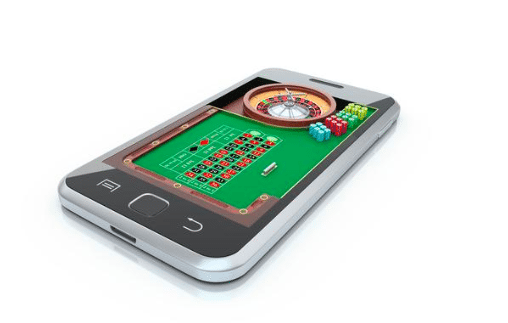Gambling is one of the oldest pastimes in the world. In fact, archaeologists have found evidence of gambling in the ancient Fertile Crescent, the ruins of Ancient Egypt and many more historical sites.
And what’s arguably the most recognizable and accessible gambling games there? Roulette. It’s a game of all or nothing, where everything’s left to chance and huge wins can be earned in an instant.
Let’s look at how this simple game came about and how technology has enhanced it further. Along the way, we’ll reveal some killer roulette strategies you can adopt to make it worth your while.
The origins of roulette in 18th century France

Roulette is a casino game that takes its name from the French word meaning ‘little wheel’, and the premise of the game is very simple. A ball is placed into a spinning wheel and players bet on the final resting place of the ball either by an exact number or by the colour – red or black.
Blaise Pascal is the man credited with creating the first roulette game in 18th century France while endeavoring to make a perpetual motion machine. However, there was also a similar betting machine called a Biribi, which originated in Italy.
In the earliest forms of the game, there were two slots reserved for the house. This ensured that the house would maintain a mathematical advantage over players. These slots were represented by the zero and double zero numbers.
The phenomenon of roulette spread through French casinos and eventually to other European countries before being introduced to North America – initially in French Canada.
As roulette spread through Europe, a German casino began creating tables with just one zero – and with a slightly better chance of winning, more players were enticed. Meanwhile, in the USA, things went the opposite way – the tables had a zero, a double zero, and an Eagle slot, which were all reserved for the house.
It was here where some gamblers and operators tried to cheat the tables by placing objects underneath it to trap the ball into certain slots. As a result, the wheel was eventually placed on top of the table, and the betting layout was simplified.
Attempts to cheat the roulette wheel
 Whenever a new gambling machine is invented, there will inevitably be those that try to circumvent the outcome and indeed there were with roulette.
Whenever a new gambling machine is invented, there will inevitably be those that try to circumvent the outcome and indeed there were with roulette.
An engineer by the name of Joseph Jagger tried to overcome the house edge in 1873 when predicted the mechanical performance of the spinning wheel. His predictions were successful, and he could predict the likely resting place of the ball with a level of accuracy that raised the return of the game to over 100%.
One of the most interesting tales of deception involving the roulette wheel came in 1961, with Edward Thorp and Claude Shannon. Thorp helped develop ‘card counting’ and Shannon was a mathematician known for his contributions to information theory.
Together, they built the world’s first wearable computer which predicted where the ball would land on the wheel. It worked through the basis timing the ball and the wheel in order to calculate the most likely slot it would end up in.
However, the machine relied on betting at the last minute – once the predictions were made. Once casinos caught on to this practice, they simply closed betting before the wheel was spun.
Twenty years later, an inefficiency in the depth of the pockets on the table was exploited by a team of gamblers to the tune of $3.8 million at the Golden Nugget in Atlantic City. This prompted every casino in the world to review their roulette wheels and introduce the low-profile wheel which was designed by George Melas.
Electronic machines and the internet: a new era for roulette
 As technology advanced, so did the gambling world. Firstly machines were introduced to land-based casinos allowing players to bet on the wheel in the casino when they otherwise would have been unable to due to overcrowding. This advancement increased the casinos earning potential as more and more players were allowed to take a spin, and bettors who would have been perhaps too shy to join the physical table were otherwise uninhibited to have a flutter.
As technology advanced, so did the gambling world. Firstly machines were introduced to land-based casinos allowing players to bet on the wheel in the casino when they otherwise would have been unable to due to overcrowding. This advancement increased the casinos earning potential as more and more players were allowed to take a spin, and bettors who would have been perhaps too shy to join the physical table were otherwise uninhibited to have a flutter.
Then the internet came along and changed everything. Gambling operators started shifting their products and services online, and their customers followed in droves. As such, the early 2000s saw a general relaxation of gambling regulations – bringing online casinos to a mainstream audience for the first time.
The shift towards more engaging gameplay
 The online roulette games available in the early days of the internet were pretty basic. 2D and flash-based games prevailed – in many cases, allowing no interaction between players and dealers, and all powered by automated algorithms that produced a set result. In short, it wasn’t realistic to the real-life experience of roulette.
The online roulette games available in the early days of the internet were pretty basic. 2D and flash-based games prevailed – in many cases, allowing no interaction between players and dealers, and all powered by automated algorithms that produced a set result. In short, it wasn’t realistic to the real-life experience of roulette.
But thankfully, the games soon became more sophisticated. Companies such as Microgaming, Realtime Gaming and Playtech developing new software for the platform. The implementation of a random number generator was a major step forward as the complex algorithms involved mimicked the random outcome of physical roulette.
Another huge improvement brought about by these companies was the implementation of digital displays, which allowed gamblers to track their bets and place wagers quickly and efficiently.
It was this particular innovation that allowed them to approach roulette with the same betting strategies they would use in real-life roulette – strategies like the Martingale system, in which the player doubles his bet if he loses a bet. Check out these other tips and you could find a roulette strategy that gives you more bang for your buck the next time you visit the table.
Live gaming and the birth of immersive online roulette
Live roulette was the next step. By video-linking online gamblers with other player and real-life dealer, it ushered in a more personal, human virtual experience. Players could then enjoy the best of both worlds – being able to play in the comfort of their own home, but as if they were in a real casino environment. Plus, it removed the unnatural random number generator element, replacing it with the traditional method of the dealer dropping the ball onto the wheel.
The engaging, immersive nature of the live roulette offering may partly explain the continuing success of online casinos today. In the UK, online gambling now accounts for one-third of all gambling revenue.
This technology soon moved to mobile devices allowing customers to play wherever they wanted, be it in the house, on the bus or standing in line at the shops.
What’s next?
The very nature of progress means that it never stops and that is certainly true of the online roulette industry. Players can now spin from their phone, anywhere and anytime in a real, live game, so what’s the next step?
In short, virtual reality. The new technology is pervading every part of the entertainment sector and it won’t be long before it finds its way to online gambling. Players will be able to don their VR mask and take up a virtual seat at the roulette table.
Whatever happens, in years to come, roulette will look incredibly different to its original form – but the essence and simplicity of the game will remain the same.







